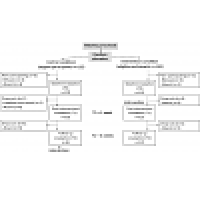The efficacy of the Friendly Attac serious digital game to promote prosocial bystander behavior in cyberbullying among young adolescents: A cluster-randomized controlled trial

Cyberbullying is a social phenomenon which can bring severe harm to victims. Bystanders can show positive bystander behavior (e.g. defending) and decrease cyberbullying and its harm, or negative behavior (e.g. passive bystanding, joining) and sustain cyberbullying and its negative effects. Few interventions have currently targeted bystanders and evaluated results on their behavior or its determinants. The intervention consisted of a serious game specifically targeting cyberbullying bystander behavior. A cluster-randomized controlled trial was conducted among 8th graders (n ¼ 216) in two schools. Measurements were taken at baseline, immediately after the intervention and at 4-week followup. The serious game intervention resulted in significant improvements in self-efficacy, prosocial skills, and the intention to act as a positive bystander. These are mainly predictors of positive bystander behavior. No significant effects were found for predictors of negative bystander behavior. The intervention also increased witnessing of cyberbullying incidents, potentially a measure of awareness of cyberbullying taking place, and quality of life. No effects were found on behavior itself, bullying or cyberbullying prevalence. This brief serious game intervention affected determinants of bystander behavior and quality of life among adolescents. Further efforts are needed to address (negative) bystander behavior and cyberbullying involvement.
Publication Reference
DeSmet, A., Bastiaensens, S., Van Cleemput, K., Poels, K., Vandebosch, H.,Deboutte, G. Herrewijn, L., Malliet, S., Pabian, S., Van Broeckhoven, De Troyer, O., Deglorie, G., Van Hoecke, S., Samyn, K. & De Bourdeaudhuij, I. (2018). The efficacy of the Friendly Attac serious digital game to promote prosocial bystander behavior in cyberbullying among young adolescents: A cluster-randomized controlled trial. Computers in Human Behavior 78, 336-347


